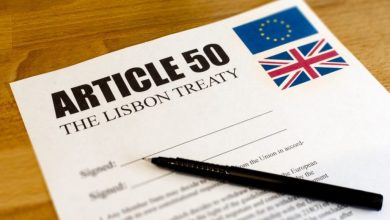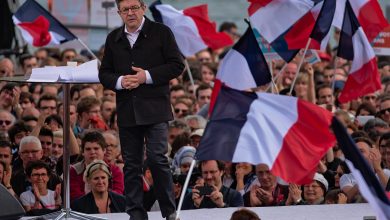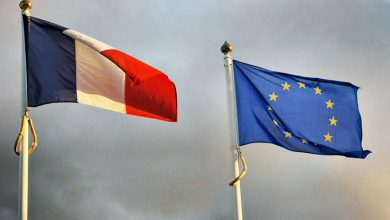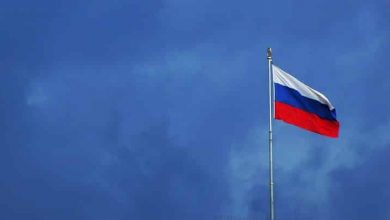Serbia 2019: A Bloody Past, a Troubled Democracy, an Uncertain Future

The last days of 2018 and the beginning of 2019 have had an air of déjà vu in Serbia. A huge number of protests, mainly in the capital, have rallied against Aleksandar Vučić’s government and its autocratic ways. The last time the country faced such important protests was during the Bulldozer Revolution of October 2000, which culminated in the overthrow the Yugoslav autocrat Slobodan Milošević.
Following that event, for a while Serbia seemed to head towards the path of democratisation, despite the tensions between the leading Democratic Party (DS) of Prime Minister Zoran Đinđić and his political opponents. However, Zoran Đinđić’s assassination in 2003 plunged the country back into a political crisis. The Republic still lives in the political chaos provoked by Zoran Đinđić death, precipitated by the delicate economic conditions of 2008.
However, the general population’s political intertia, which was commonplace until some years ago, is now evolving. An increasing number of people are asking for deep reforms and more democracy within their country. Citizens are assembling and debating ideas in the public arena, hoping for a global change in their countries. It is also reported that new parties, NGOs and grassroots movements are emerging, especially on the local level. Most of those ‘citizens’ platforms’ promote local democracy, green politics, and aim to renew the Serbian pro-EU impetus.
But today’s events cannot be looked at separately from the past. The path which has led to these protests taking place follows a logic which began in the 90s, during the collapse of the Socialist Federal Republic of Yugoslavia. This article will attempt to retrace the historical hows and whys which have led to the current state of events in Serbia.
The First Democratisation Efforts
The Democratic Party, with its birth, early-stage anti-regime fights, and subsequent election of Zoran Đinđić, heavily contributed to the democratisation of Serbia in the immediate aftermath of Yugoslavia’s fall. Đinđić, chairman of the party in 1995 then leader, can be credited with aligning the party to an anti-regime position and publicly calling for the end of Milošević presidency.
His efforts would lead DS to be one of the main actors in the ousting of Milošević in 2000, following the Bulldozer Revolution. Subsequently, Đinđić became Prime Minister, and set as his top priority in office that of freeing the Serbian government from corruption – particularly due to mafia organisations -, ensuring the rule of law, and leading the country closer towards Western Europe.

However, these actions met with strong resistance, particularly from those same nationalistic mafia organisations he was trying to oust. Disturbed in their activities, these groups and political opponents alike began a fierce mediatic campaign against the Prime Minister, constellated by various assassination attempts. One of these attempts would reach its mark in 2003, leading to the premature death of Đinđić and of all structured attempts to bring democracy to Serbia.
His assassination brought havoc to the Democratic Party and all of the reforms they were trying to implement. Corruption started rising again in the country, and an increasingly more disorganised government further slowed down the democratisation process. Despite this, the DS maintained a fair amount of electoral success until 2008, when Boris Tadić was elected as President. 2008, however, is the year when everything changed in the Serbian political sphere.
The Turning Point: 2008
The economic crisis of 2008 considerably affected the young Serbian Republic, as well as the rest of the Balkan Peninsula. It hit a vulnerable economic system, still recovering from two decades of transitional economy and accelated privatisation. With the appearance of the world economic crisis, all the chicken came home to roost: the weaknesses of the Serbian economic policy – including haphazardly privatization, the unfavourable structure of import and export, and unplanned spending of revenues that came from foreign investments – took the stage front and centre and precipitated the economic crisis in the country.
Further contributing to the radical shift in Serbian politics came Kosovo’s declaration of independence in February of this same year, which caused an incendiary spike in nationalist feelings and political declarations in Serbia.
In addition to these two events, poorly managed by the DS-led government, corruption scandals of Democratic Party officials weakened the party to its lowest-ever point in public consensus, leading to it being voted out in the 2012 elections. The downfall of the party was such that the DS didn’t even present a candidate for the 2017 presidential elections.
One other monumental event would happen in 2008 that would change Serbian democracy, politics and civil society forever: the Serbian Progressive Party (SNS) was founded, a splinter group of the ultranationalist Serbian Radical Party of the former paramilitary leader and war criminal Vojislav Šešelj. Its founders, Tomislav Nikolić and Aleksandar Vučić, were both prominent members of the Radical Party, but were in disagreement with its foreign policy, particularly in its portrayal of the EU as an enemy of Serbia. Despite its theoretical status of ‘pro-European’, however, the new-born SNS still held a powerful conservative rhetoric.
Both founders of the Serbian Progressive Party were known to be controversial politicians. Tomislav Nikolić did not hide his support for the paramilitary Serbian forces during the Yugoslav civil wars or his staunch belief in the ‘Greater Serbia’ ideology, something that he claimed to have “abandoned” after the founding of the SNS. Aleksandar Vučić held similar beliefs, although tried to be more subtle about them.

Despite this reputation, the SNS found a perfect breeding ground for power in the aftermath of the poor management of the 2008 events at the hands of the DS. SNS launched its 2012 general elections campign on the basis of an anti-corruption platform, and focused on publicly discrediting the DS for betraying the legacy of Zoran Đinđić with their corruption scandals.
As a result, they found themselves propelled to power after the elections. Tomislav Nikolić defeated former President Boris Tadić (DS) for the position of President, and an SNS-led coalition secured a sufficient number of seats in the Serbian National Assembly to allow them to form a minority government. Aleksandar Vučić was also elected Prime Minister.
Another Democratic Downphase: 2012-Present
The SNS government has held troubling policies in the country since entering power. They managed to gain control of powerful media outlets and began systematically harassing independent media, in a staunch reminder of the darkest hours of Serbian political life under Milošević’s regime.
Their mediatic power, dictatorial tendencies and growing lack of transparency have led to a lack and loss of interest of the Serbian population in politics, explaining the low turnout to every election. Traditional parties are effectively crippled by corruption affairs, not giving a trustworthy image to the people. This lack of interest also explains why SNS is able to secure strong results in almost every election, since their voting basis is the only one getting involved in the elections.
The most notable example is probably the 2017 Presidential election, when Aleksandar Vučić was elected in the first turn with 56% of votes, with a turnout of not even 55%. The election was followed by significant protests in all the country from all sides of the political spectrum. The state-controlled media outlets promoted Aleksandar Vučić as the most reliable and important candidate, while attacking the other candidates who had very few platforms to express their views, and hence achieved poor results.

A recent example of their stranglehold on the media is the recent acquisition of two national TV Channels by Kopernikus, a cable operator owned by a friend of Vučić and the SNS. Such a move strengthened even more the dominance of the SNS on the Serbian media outlets.
SNS also apparently relies on its local thugs to coerce people to vote for them in elections (a particularly notable phenomenon in local elections). Opposition MPs, leaders or mayors are routinely threatened. Aleksandra Jerkov, a DS MP who was interviewed by the French online newspaper Balkans Courier in June of 2018, reported how her colleagues of the SNS are constantly trying to block the speeches of the Opposition members and how they’re constantly insulted, harassed within the walls of the National Assembly.
Furthermore, while the regime is technically a Europhilic one, as joining the European Union is one of their top priorities, attacks to basic democratic rights have been commonplace since the SNS entered power, something directly against the European values. The harassment and beatings of political opponents, harassment and attacks of independent medias is something that is also strictly against European values, and is viewed as a negative signal by the EU in terms of Serbia’s progression with the Copenhagen criteria.
The future of Serbia
Despite the fact that, pragmatically speaking, the situation is better than the one of the end of the 90s, Serbia has kept on suffering from political instability. Those same autoritarian behaviours that marked the Milošević era, and those same nationalist mafia groups that brought down the reformist government in 2003 still have a place in Serbian society in 2019.
The constant degradation of political life since 2003 and all of its consequences have led to a serious case of civic discontent which must be addressed if Serbia is to move forward in its path of democratisation, aligning with the West, and joining the EU. Notwithstanding the high levels of Euroskepticism in the country, which is a cry for help more than anything else, these protests have been a strong indication that the pro-European core of Serbia has not disappeared: seeing the EU flag is not an uncommon sight during anti-regime manifestations.
Serbian political life might evolve as a result of these systematic protests. So far, no charismatic opposition figures have truly emerged who could take the country’s reins, but it hasn’t stop the protests which are still ongoing.
Parliamentary elections are set for next year, and there is no saying what could happen if citizens keep their current political activism alive until then. Many hypotheses exist on the future of the Republic, but for now let’s hope that in a near future Serbian people succeed in stabilising their country. As of now, the social and political struggle keeps going.






One Comment